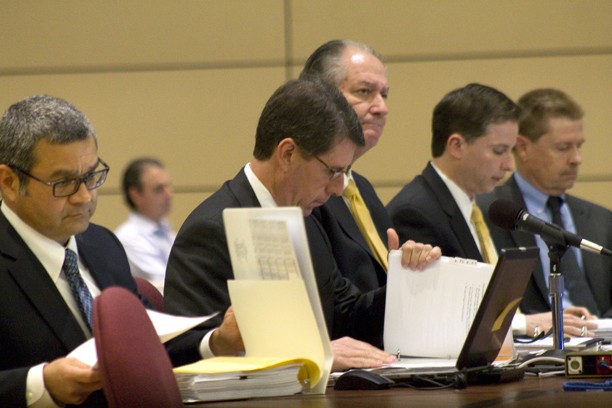University students throughout Arizona will see one less charge on their tuition bill after the Arizona Board of Regents unanimously voted last week to change a university fee for a student lobbying group to opt-in only.
The three state universities will no longer automatically collect the $2 per-student, per-semester fee for the Arizona Students’ Association. ASA is a lobbying organization that “works to make sure that higher education in Arizona is affordable and accessible,” according to its website.
Following the vote, the organization will now rely on an opt-in fee from students to fund its activities. ASA collected about $600,000 every year from all three state universities through the fee.
“The concern the students had is that most students don’t pay attention to that on their bill and so they don’t really have a choice,” said Rick Myers, chairman of the Board of Regents. “They pay their bill and their money automatically goes there so they’re not making a conscientious decision.”
Four months ago, ASU student body presidents went to the regents and questioned the benefits of the organization, Myers said. These concerns were shared by the students regents, which led to discussions on what to do with the fee. Regent Dennis DeConcini suggested an opt-in fee and a final compromise was made to follow through with this suggestion, Myers said.
“We have the stance where we wanted it removed completely, but we’re happy with the decision the regents made,” said Mark Naufel, president of the undergraduate student government on Arizona State University’s Tempe campus. “It’s kind of a win-win for everyone, now students can decide if they want to make a contribution to this non-profit, but they’re not being forced to pay into it.”
The universities will finalize the system this summer and there will be a clear choice for students to check off whether or not they want to give money to the organization, Myers said. If students do check it off, their money will be sent to ASA.
“It’s going to be an adjustment, but I don’t see it changing the capability of the organization as a whole,” said Jordan King, vice chairman of the ASA board of directors and ASA chairman of internal affairs from the UA.
The change will make the directors’ jobs more in-depth and push them to become more vocal about the organization’s activities, King said. The change will not have an impact on the effectiveness of ASA, he added.
However, some students are concerned about the decision to change how the fee is collected and stressed that it goes against student opinion.
In 2008, 73.7 percent of students from all three universities voted to approve the increase from the $1 per-student, per-semester fee to $2, said Zachary Brooks, president of the Graduate and Professional Student Council, in an emailed statement.
“That is the last time students were asked their opinion about the fee,” Brooks said. “Twelve regents decide to take away student choice, contradicting their own bylaws.”
However, Myers stressed that the regents’ goal was to address concerns brought from university students regarding ASA.
“Some people have mentioned that we were trying to punish ASA or we’re mad at ASA and that really isn’t the case,” Myers said. “The case was, as regents, when you have the four presidents of the four campuses of ASU come to your meeting and say ‘We have a serious concern with this organization’ … what we were trying to do was respond to that situation.”









